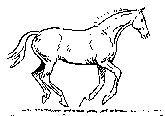I was reading an article the other day about the Green Man in English folklore. (The thesis of the article is that a lot of the mythology around the Green Man was invented pretty recently.) That article mentioned Sheela na Gigs, which are stone carvings of women in unusual poses. And that in turn led me to the new-to-me word this week: hunky punks.
 Most people probably know about gargoyles, which are stone carvings on the side of a church. Gargoyles have a practical purpose: they channel rainwater away from the building. A typical gargoyle contains a pipe that shunts the water out through the gargoyle's mouth.
Most people probably know about gargoyles, which are stone carvings on the side of a church. Gargoyles have a practical purpose: they channel rainwater away from the building. A typical gargoyle contains a pipe that shunts the water out through the gargoyle's mouth.
Fanciful stone carvings that decorate a church are therefore not gargoyles. The general term for these is grotesques. But in the west counties of England, particularly in Somerset, grotesques are known as hunky punks. Everyone gives essentially the same explanation: hunky is related to haunches, and punk is a variant on punch, which is something short and fat.
Now you have a term you can use for the decorative faces on faux-gothic buildings in your town. Like these walruses on the side of the Arctic Club building in Seattle:
For origins today, I have two words pertaining to equine locomotion. The first is canter, which is a loping sort of run. An accepted origin for canter is that it's short for Canterbury gallop or Canterbury pace, a sense that goes back to the 1600s. Why Canterbury? Because that's where pilgrims in England went, and to canter was "supposed originally to designate the pace of the mounted pilgrims."
 That's not the only theory, though it's the one endorsed by the mighty OED. In his book The History and Art of Horsemanship (1771), Richard Berenger, "Gentleman of the Horse to His Majesty," proposes (page 71) that canter derives from Cantberius, a Roman word for packhorses. These were always geldings, which were calmer horses, and this led to canter being an easy sort of gallop. You can read for yourself:
That's not the only theory, though it's the one endorsed by the mighty OED. In his book The History and Art of Horsemanship (1771), Richard Berenger, "Gentleman of the Horse to His Majesty," proposes (page 71) that canter derives from Cantberius, a Roman word for packhorses. These were always geldings, which were calmer horses, and this led to canter being an easy sort of gallop. You can read for yourself:
On to origins, part 2. A canter is a gentle gallop. Whence gallop? I love this one. It's probably from wala hlaupan, which looks weird, but is just some olde type Germanic. The wala part is basically "well." The hlaupan is "to run," which we still have in English as to lope and is a cousin of to leap. (In German, it's laufen.) So gallop is to run well.
But wait, where'd that g- come from? It's not sure (like, there's no textual proof), but it might be another example of a familiar sound change. There are a number of words that originated as Germanic terms but that in Old French substituted g for w: ward/guard, warranty/guarantee. In fact, an obsolete word for gallop is wallop. ("Cam there kyng charlemagn, as fast as his horse myghte walop" from 1490.) But the careful lexicographer would want more evidence than is currently available.
Like this? Read all the Friday words.
 |
|

 |
|
